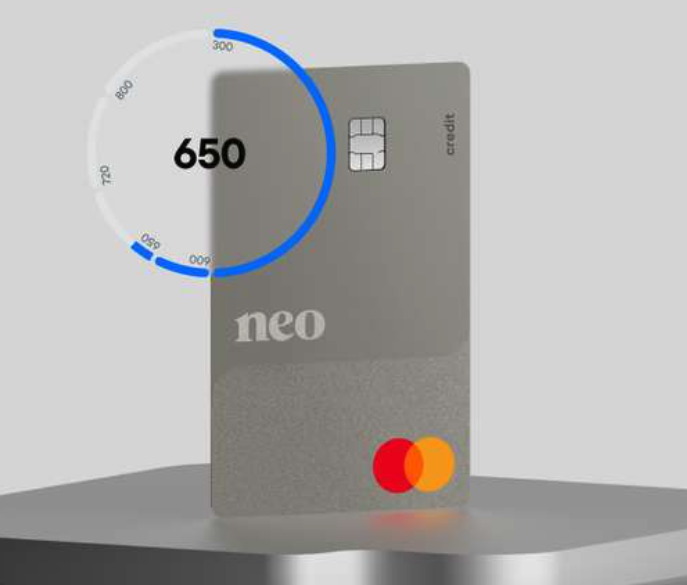When you’ve got debt in collections and want to rebuild your score, there are two ways to deal with it. You can either pay the debt in full or negotiate a settlement. Both options close the account, but how they’re reported on your credit file impacts your credit score and road to recovery.
“If you pay it in full, that’s better,” says Margaret Johnson. “It’s going to show up on your credit report with a paid or zero balance. That will help to improve your score faster.”
Margaret is a Registered Insolvency Counsellor who has spent forty years helping people rebuild their credit. She was also the first woman in Canada to found an independent credit counselling company, launching Solutions Credit Counselling in 1999 followed by Women and Money in 2001.
Did you know that half of secured Neo card holders improve their credit score by an average of 26 points in just 3 months? Plus, sign up now via the button below and get a $60 welcome bonus.
* Limited-time offer. Only valid for new Neo customers who open their first eligible Neo credit product and make a purchase within 90 days. Limit of one offer per customer. Offer is subject to the Neo Rewards Policy and may be amended or cancelled at any time without notice.
She explained that paying in full is the preferred route because future lenders see that you made good on the entire debt. Sure, you had some trouble, but the previous lender did not take a loss.
If you can’t afford to pay it in full, Margaret says a settlement is the next best thing. “You want it to show up as settled, zero balance, because you paid the agreed amount.” But you need to get the agreement in writing to ensure the agency holds up its end of the bargain.
And how that letter is worded is also incredibly important. She has seen files where people owed $3,000, paid a settlement agreement of $1,500, but the agency still reported the other half as still owing. The practice falls within a legal grey area. So you need to be vigilant and confirm it’s reported accurately according to the written agreement.
The Zombie Debt You Should Never Pay Off
While paying your debt is the golden rule of credit, there is a caveat. You can ignore debts that are both past the statute of limitations and are no longer showing up on your credit report.
Collection items age off your file after six years from the date of last activity. That last activity could be the date you first missed a payment or the last time you made a payment. Once it’s aged off, though, it’s no longer visible to lenders and no longer affects your score.
Debt collectors are allowed to continue collection action because you still legally owe the money. They just can’t sue you once the statute of limitations expires. But there’s a small trap people fall for all the time.
Making a payment doesn’t restart the statute of limitations, but it does restart the clock on your credit report. That means if you send a small payment on a very old debt that’s already disappeared from your report, the new activity puts it right back on your file and renews the reporting period. And there it sits, for another 6 years, dragging your score down again.
“If they can get you to make a payment on that debt, $1.00, $0.50, or whatever, it brings the debt back to life,” explains Margaret. So if a collector is hounding you for a debt that is long gone from your credit report, “Don’t pay it,” she says.
Following Up After Payment
Paying the damn thing is only half the battle. You also have to make sure it shows up correctly on your credit report.
Lauren Cañafranca recommends starting with the collection agency if your report doesn’t update within a couple of months. Ask them to confirm the account has been marked as paid or settled with a zero balance. If they don’t fix it, then take your documentation straight to the credit bureaus and file a dispute for free. “Once you file,” she says, “the credit bureau has 30 days to respond.”
Margaret Johnson agrees that proof is everything. “If it’s not in writing, it didn’t happen,” she says. Keep your receipts, settlement letters, and any emails that confirm payment. Those documents are your insurance policy if you ever need to challenge a mistake.
“You need to wait 30 to 60 days and give the credit bureaus a chance to update the information,” she explains. After that, pull your own credit report and check that the account now shows a paid or settled status, and that the reported balance is now zero. If it doesn’t, act fast. You’ve got the letter and receipt as indisputable proof.
Which Debt Should You Pay First?
The most aggressive collector isn’t necessarily the one who should get paid first. Margaret says to start with the debt that’s going to have the biggest impact on your financial stability.
Debt collectors, she reminds us, are not working in our best interest. “They might yell the loudest, but collectors are paid a salary and commission. The more money they collect in the shortest amount of time, the more money they make.”
She suggests focusing on debts with the highest balances, or essential services like water, heat, and hydro. And of course, you’d want to prioritize debt that’s closest to legal action.
But there’s also psychology at play. She says that paying off a smaller balance first can give you that much-needed sense of progress. “You think, ‘Okay, I did it. I got one paid off and now I’m on to the next one.’”
Of course, this shouldn’t come at the risk of having your water cut off or a court ruling to garnish your wages. Take care of the debts that could hurt you the most, legally or practically. Then use the quick wins on smaller balances to keep the momentum going. Ignore the noise and focus on what actually moves the needle.
When Will My Score Go Up?
You’ve made the payment. Great! Now you’re probably wondering when and how much your score will improve. “There’s no exact formula for points,” says Margaret. “They’re constantly changing how they calculate credit scores. So it depends on what the rest of your file looks like.”
That means the results are specific to you. Things like payment history, credit utilization, and the status of your other credit accounts are all at play. Still, Margaret says that paying off collections immediately starts the rebuilding process. “It gets reported on the file, and then they do their score calculations again.”
But, she says, “You’re not always going to see a jump in the first 30, 60, 90 days.” Stay the course and be consistent. Keep making on-time payments, pay down your credit cards, and be patient while the system catches up. Paying off collections doesn’t erase the past, but it does prove you’re turning things around. And that’s the part that the algorithms eventually reward.
Beware the Credit Repair Specialist
Once you’re ready to deal with your debt, quick fixes are super tempting. And there’s no shortage of people promising to delete the bad stuff off your credit file… for a fee.
Credit counsellors are licensed and regulated at the provincial level. While special training isn’t legally required, many hold designations like Accredited Financial Counsellor Canada (AFCC), which is a major green flag to look for. The focus on debt management from understanding your credit report to building realistic repayment plans, and negotiating with creditors on your behalf.
Certified financial counsellors also have the AFCC designation, but they take a more holistic approach to financial wellness that includes debt management. They typically work for acredit, not-for-profit organizations.
Credit repair specialists, on the other hand, are for-profit companies that often charge several hundred or even thousands of dollars and tend to make promises they can’t legally keep. No one can remove accurate information from your profile.
Credit counselling generally costs far less, and that cost can vary widely from one agency to the next. However, some provinces limit how much they can charge. In Manitoba, for example, agencies can’t charge more than 10% of what you owe.
Before working with anyone, research the organization and contact your provincial or territorial consumer affairs office for verified credit counselling support.
Source: canada.ca






